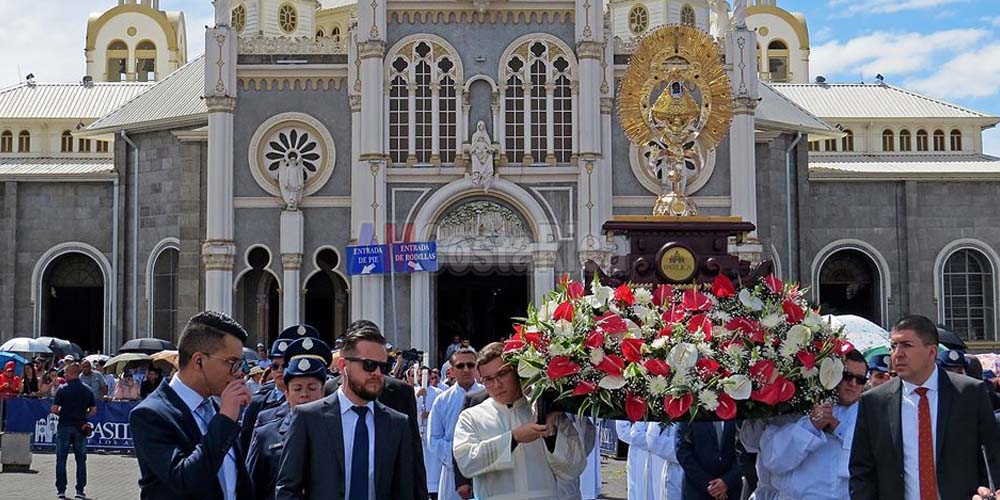 |
|
|
Published Thursday, May 14, 2020
Traditional
pilgrimage canceleddue to pandemic The traditional pilgrimage dedicated to the so-called La Negrita, Virgen de Los Angeles, was suspended to avoid transmitting the covid-19 to pilgrims, announced the Roman Catholic Church on Wednesday. The mission has been in place since 1635. "This activity gathers crowds of people is the largest mass event in the country, with an average of between two and two-and-a-half million pilgrims during those days," said Monsignor Mario Enrique Quirós, Bishop of the Cartago Province. “For this reason, and with a look of hope, I wish to express to all our parishioners that for this year 2020 it will not be possible to carry out our traditional pilgrimage and other public religious acts in honor of the Patroness of Costa Rica, since that can put Costa Ricans health in risk." The representatives of the Catholic Church announced the cancellation of the activity in response to the warning made by Daniel Salas, Minister of Health, about the high risk of transmission of covid-19 for people attending the pilgrimage. As was previously reported, La Negrita is the boss or patron of Costa Rica expected to help them throughout their life, according to Catholics in the country. La Negrita is a stone sculpture that measures about 20 centimeters and is composed of volcanic rock, graphite and jade. Since the rock is black, people call it "La Negrita" but it is presumed to be the image of the Virgin Mother of Jesus. The image has a round face, slanted eyes, a little nose and a small mouth. In her left arm, she holds the baby Jesus whose right hand is raised as in giving a blessing. The name given to the idol is Virgin of Los Angeles because she was discovered on August 2, 1635, by the Franciscan Order venerating its patron saint, Santa María de los Ángeles. On Sept. 24, 1824, by decree of the highest political authorities of the country, the Virgin of the Angels was declared as the official patron of Costa Rica. La Romería, which translates to pilgrimage, dedicated to La Negrita is celebrated for more than 400 years on August 1. The tradition that began with the Catholic community, has become one of the most important events of the year. Romería is a mass journey of the faithful to pay homage to the virgin located at Basilica Nuestra Señora de los Angeles, in the Cartago Province. This is the second time in Costa Rican history that the Romería is canceled, also for health reasons. In August 2009, María Luisa Ávila, the minister of Health at that time, said the official suspension of the annual pilgrimage was for the protection of the health of the population. Avila was warning that the incidents of swine flu were expected to peak at the end of August 2009 and that an estimated 20,000 people would come down with the illness if the pilgrimage continued as planned. As a response to Health authorities, the Catholic Church officials agreed to keep the Basilica de Nuestra Señora de los Ángeles closed, canceling the traditional day for a mass and sermons in honor of the virgen. In 2009 the authorities reported 12 persons died in Costa Rica from illnesses partially attributed to swine flu, most of them had pre-existing health conditions that made them vulnerable. There were about 560 confirmed cases of swine flu. For this year's Romería celebration, it is expected that Catholic church leaders announce the religious activities that will substitute the traditional Romería this year. This is one of several huge events canceled due to orders by the government to hold the spread of covid-19 in the country. --------------------- Are you for or against the ban on the Romería? We would like to know your thoughts on this story. Send your comments to news@amcostarica.com |
|
|
|
  |
|
|

  |
















